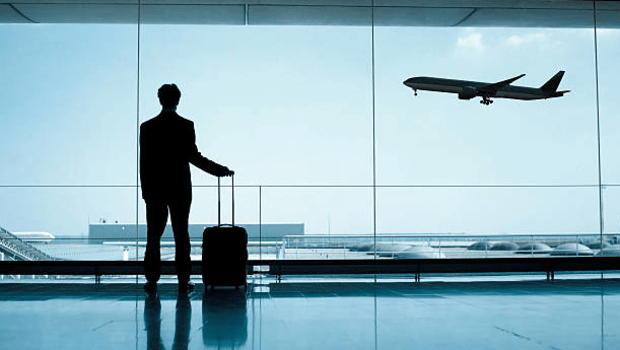-

-
Published on
16/11/2017
by Any Business.Com.Au
Get your business travelling safely
Whether it's for extended trips overseas or short conference trips interstate, it's important to think about safety when travelling for business.
Create a business travel plan
Planning ahead means you'll be prepared if there are any emergencies or unexpected events.
To make sure you have all the essential information, such as travel insurance details and itinerary, create a business travel plan for every trip you or your employees make.
Be security conscious
It's important to be conscious of your security when travelling for business.
You and your staff should watch out for:
• any signs of suspicious behaviour, like people following you or glancing at you repeatedly
• pick-pockets, particularly in busy places like tourist attractions or crowded markets
• anyone who asks too many personal questions about you or your business
• anyone who wants your personal or business details.
If you get asked invasive or suspicious questions about your business, make sure you note the details and report it at work after you return from your trip.
Travel confidently
Don't make yourself a target for criminals. Being confident and assertive when travelling can help to discourage unwanted attention.
You can be more confident by:
• doing some research beforehand – find out in advance where the taxi ranks are, or where you need to catch public transport
• knowing the exact address and location of your conference, meeting or appointment
• writing down your destination in both English and the local language – you can give it to taxi drivers or tour operators to make sure they know exactly where you want to go
• not walking around while holding a map – it looks like you're unfamiliar with your surroundings and makes you a target for criminals.
Always be aware of your surroundings and belongings when travelling.
Overseas travel
If you're travelling overseas, there are some extra precautions you should take. Even if you're going on a routine, short-term business trip, your overseas travel still contains risk.
If you're travelling to a location where English is limited or there are different safety standards for transport, think about how you can reduce potential difficulties.
To increase the safety and ease of your overseas business travel, you can:
• organise transfers for travel between the airport, hotel and meeting locations. Research your options and try to use companies that have been recommended to you or have a good reputation.
• write down your hotel, airport name, meeting location and any allergies you might have in both English and the local language. This can help when communicating with restaurant staff, receptionists and taxi drivers.
• carry small notes or coins in the local currency. Sometimes an entrance fee is required to use the bathroom, or even enter a building.
• familiarise yourself with the country's dress standards so you're properly and respectfully dressed for any business meetings.
Head to the Smart Traveller website to start researching and planning your overseas travel.
The website also has information about:
• guide for all travellers
• how to develop solid security measures and evacuation options
• the importance of your health while travelling overseas, both mental and physical
• case studies from other business travellers, to get you thinking about how you can manage the same risks
You should also register your business travel on the Smart Traveller website before you leave.
Registering your travel means:
• you will receive up-to-date information about the country you're going to
• authorities will be able to find you more easily in an emergency.
Healthy travel
Your health, both mental and physical, is very important when travelling for business.
It's a good idea to make an appointment with a doctor eight weeks before departure to discuss any medication or vaccination requirements.
If your employees are travelling for business, remember that you're accountable for their health and safety under workplace health and safety legislation.
If you're leaving the country, get tips on maintaining your health while travelling overseas from the Smart Traveller website.
Did you know?
• If you're an employer, you may need to pay travel allowances to your staff.
You can generally claim business travel expenses as tax deductions.
Related articles



